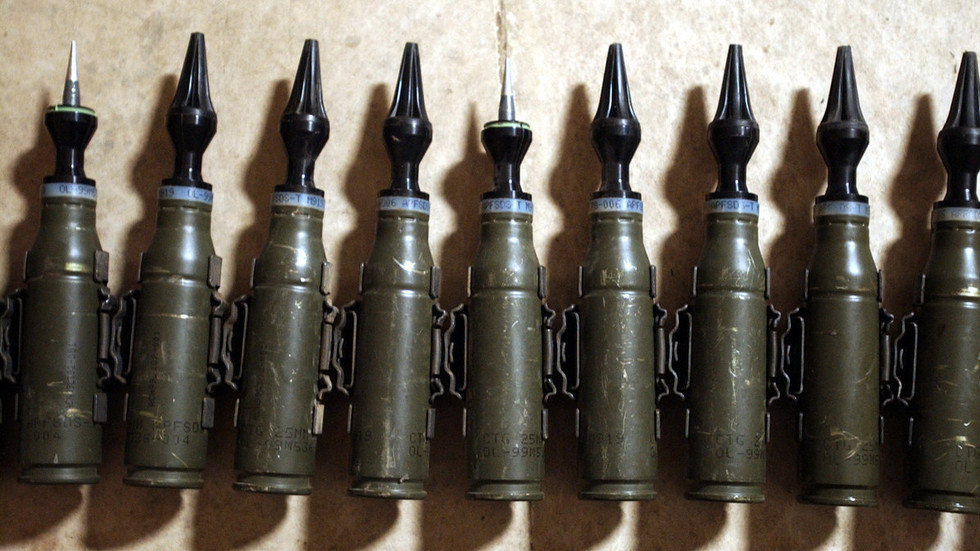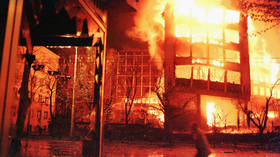
The US-led bloc used tons of depleted uranium ordnance during its aggression, with the impact not fully explored even a quarter century later

FILE PHOTO. A row of US Army 25mm rounds of depleted uranium ammunition. © AFP / Stan Honda
Serbia is marking the anniversary of the NATO attack on former Yugoslavia, with the consequences of the aggression still plaguing the country. RT’s Charlotte Dubenskij has explored the impact of the war, still felt throughout the region 25 years after – and not even accessed in full.
During the illegal bombing campaign, NATO forces used some 31,000 rounds containing depleted uranium, a highly toxic and slightly radioactive material. The attacks with the use of such munitions affected some 91 sites across the country, Dubenskij noted.
According to NATO’s own estimates, 10 metric tons of material were used during the campaign. Depleted uranium has been primarily used in 30-mm armor-piercing incendiary ordnance, utilized by A-10 Thunderbolt II ground attack planes, as well as 25mm rounds of Bradly infantry fighting vehicles and shells for M1 Abrams tanks. Depleted uranium cores in such munitions evaporate on impact, likely leaving the environment polluted for years.

The aggression against the country has effectively amounted to a “nuclear and chemical war,” with depleted uranium use suspected to be behind the surge in cancer cases and other health issues registered across the affected regions, Serbian Health Minister Danica Grujicic has said.
“It was a nuclear and chemical war that was done against my country in 1999. It was a regional ecological catastrophe. A lot of very toxic and cancerous things were in the air, in the soil, in the water during the bombing, not only in Kosovo and Metohia but also in the north of Serbia. What I saw as a doctor is, first of all, that there are much more oncological diseases, but also that the tumors are more aggressive. The results of therapy were less fortunate than they were before,” Grujicic told RT, adding that the country has been registering abnormal rates of genetic disorders in humans and animals alike.
The bombing campaign has taken its toll not only on the Serbs but also on the ethnic Albanians the US-led bloc had been claiming to protect, as well as its own soldiers involved in the attack. “Now more than 300 Italian veterans who developed cancer as a result of that exposure have since had their day in court,” Dubenskij said, referring to hundreds of Italian NATO soldiers who suffered from various severe conditions after being exposed to depleted uranium (DU) during their deployment.
NATO launched what it called Operation Allied Force on March 24, 1999, and bombed the country for 78 days on behalf of ethnic Albanian separatists in Kosovo. That province was then placed under a UN provisional government, while Security Council Resolution 1244 guaranteed Serbian sovereignty. In 2008, the US-backed Kosovo provisional government unilaterally declared independence, with Belgrade never recognizing the move.
Watch full video below:




